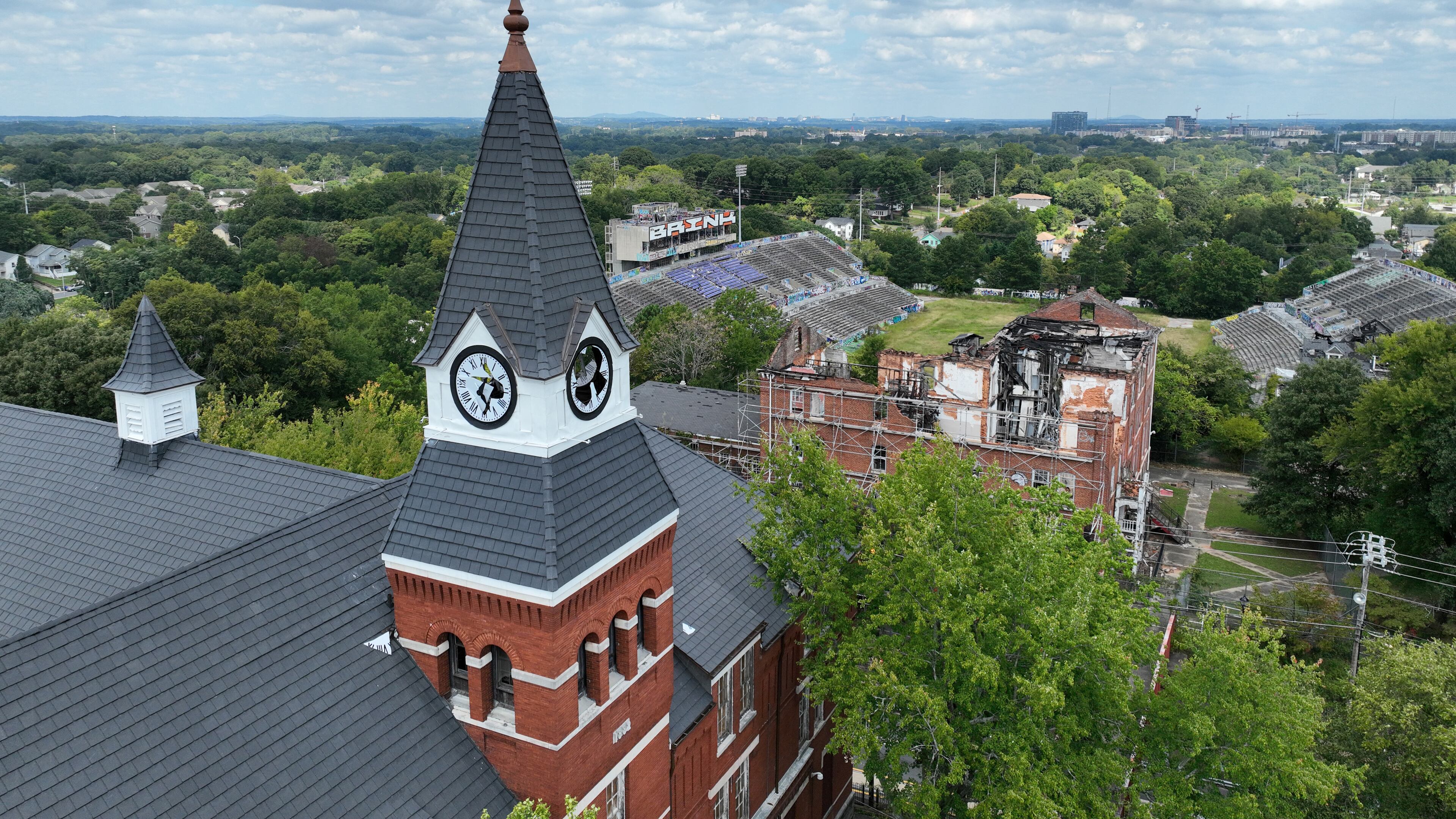Vandals stop Morris Brown College’s clock

Just days after recently accredited Morris Brown College celebrated students returning to campus, vandals broke into historic Fountain Hall and destroyed the refurbished clocks that top the building.
The struggling Black college, which fought for 20 years to regain its accreditation, received $500,000 in 2020 from the National Park Service to repair the building’s roof, iconic bell tower and clock face.
Now the school is scrambling for more funds to fix the damage.
“People cried when they saw it,” said R. Candy Tate. She was instrumental in getting the money to restore the windows in the building. As the chair of the Hallowed Grounds Committee of the Atlanta Branch of the Association for the Study of African American Life and History, she wrote the proposal for a $500,000 grant.

Seeing the recent damage “was heartbreaking, knowing all of the hard work that everyone did, including the alumni, to restore the clock,” she added. “We were staying up late, writing grants and honoring this history. So knowing the love that so many have for Morris Brown, this act is dishonoring that commitment to this work.”
Kevin James, the president of Morris Brown College, said a patrolling security guard heard noises and spotted several “kids” running out of the building.
In the light of day, each of the tower’s four clock faces seems to have been kicked out. In the darkened building, which has no electricity, the vandals would have had to climb the stairs to the top floor, then navigate a series of ladders to gain entry into the clock tower — dangerous even in the best of conditions.

“This was purposeful, intentional and egregious,” James said. “They knew exactly where to go and what to do. And for someone to do this cusp of our restoration is disheartening.”
Last month, the school welcomed back to campus more than 200 students. For a school struggling to regain its footing, the damage to the four-sided clock atop Fountain Hall, which can be seen for miles and once rang every hour, could serve as a psychological blow.
Founded in 1881 by the Georgia Conference of the African Methodist Episcopal Church and named for one of its bishops, Morris Brown was the first institution of higher education in Georgia created by Black people for Black people.
Fountain Hall, originally named Stone Hall, was built in 1882 by Atlanta University on the crest of Diamond Hill, one of the highest points in the city.

Atlanta University used the three-story, red brick, High Victorian-style building from 1882 until 1929 primarily as an administration building, chapel and library.
W.E.B. Du Bois, who taught at Atlanta University, maintained an office in the building from 1897 to 1910. From there, he wrote “The Souls of Black Folks” in 1903 and “A Litany of Atlanta” in 1906 in response to the Atlanta Race Massacre.
The building has been closed and boarded up since 2003. Experts estimate that it would cost about $30 million to fully restore the building.

Tate said university and philanthropic agencies are in the process of raising money to move forward with the building’s restoration and to replace the clocks.
“But this is definitely a setback,” she said.


